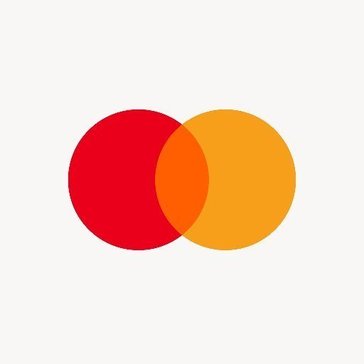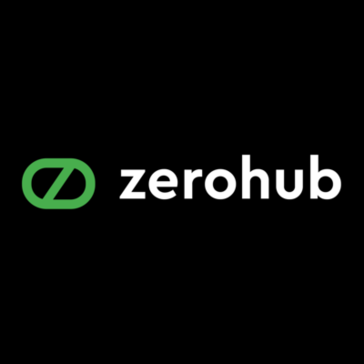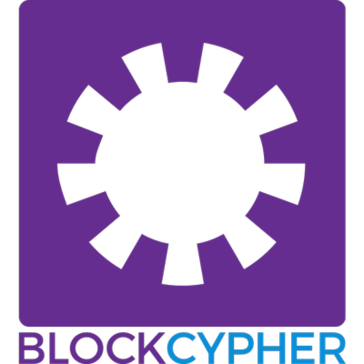Description

Mastercard Blockchain

OpenBazaar
Comprehensive Overview: Mastercard Blockchain vs OpenBazaar
Mastercard's blockchain initiative and OpenBazaar are both part of the broader blockchain ecosystem, focusing on enhancing and utilizing decentralized technologies, but they serve different purposes and target audiences. Here's a comprehensive overview:
a) Primary Functions and Target Markets
Mastercard Blockchain:
-
Primary Functions:
- Payment Solutions: Mastercard's blockchain technology aims to streamline cross-border transactions, reducing costs and improving transaction speeds without compromising security.
- Supply Chain Management: The blockchain is also used to enhance transparency and traceability in supply chains, which can be beneficial for industries that require rigorous compliance checks.
- Digital Identity: It explores the possibility of using blockchain for secure digital identity verification, potentially revolutionizing how personal data is managed and secured.
-
Target Markets:
- Primarily targeted at financial institutions and large enterprises that require efficient cross-border payment solutions.
- Industries that benefit from supply chain transparency, including pharmaceuticals, agriculture, and consumer goods.
- Governments and sectors dealing with sensitive data may have interest in digital identity solutions.
OpenBazaar:
-
Primary Functions:
- Decentralized Marketplace: OpenBazaar serves as a peer-to-peer marketplace where individuals can buy and sell goods and services directly, without intermediaries.
- Cryptocurrency Transactions: Transactions on OpenBazaar are conducted using cryptocurrencies, such as Bitcoin, supporting the use of digital currencies in everyday trade.
-
Target Markets:
- Consumers and small businesses interested in direct trade without intermediary fees.
- Cryptocurrency enthusiasts and users who want to engage in e-commerce using digital currencies.
- People seeking more privacy in their purchases and sales.
b) Market Share and User Base
Mastercard Blockchain:
- As a technology under the Mastercard brand, the blockchain initiative benefits from the company's extensive global presence and existing customer base.
- Its actual market share in the broader blockchain ecosystem is not clearly defined as it integrates into Mastercard's overall service offerings, and it primarily competes with other fintech and financial service providers implementing blockchain.
- The user base largely comprises financial institutions and enterprises rather than individual end consumers.
OpenBazaar:
- OpenBazaar historically has had a niche user base primarily within the cryptocurrency community, appealing to those who value decentralized systems and privacy.
- Despite the innovative model, OpenBazaar struggles with achieving substantial mainstream market share due to various factors, including competition from more traditional e-commerce platforms and volatility in cryptocurrency markets.
- The platform has seen fluctuating user engagement and continues to operate on a much smaller scale compared to giants like Amazon or eBay.
c) Key Differentiating Factors
-
Business Model & Purpose:
- Mastercard Blockchain is a corporate-level initiative focusing on integrating blockchain to enhance traditional financial and supply chain systems. It aims to remain within regulatory frameworks and partner with existing financial institutions.
- OpenBazaar operates on a community and cryptocurrency-centric model, emphasizing decentralization and direct peer-to-peer transactions outside of traditional systems.
-
Technology Approach:
- Mastercard employs a permissioned blockchain which provides controlled access ideal for businesses needing conformity with regulatory requirements.
- OpenBazaar uses a fully open-source and decentralized model, promoting freedom and privacy but potentially at the cost of lacking regulatory oversight.
-
Adoption Strategy:
- Mastercard leverages its established relationships and infrastructures to drive the adoption of blockchain services.
- OpenBazaar relies on community uptake and word-of-mouth within niche markets, limiting its viral growth compared to platforms backed by substantial corporate resources.
These products illustrate the diverse potential applications of blockchain technology, from enhancing traditional systems to challenging existing paradigms through decentralization.
Contact Info

Year founded :
Not Available
Not Available
Not Available
Not Available
Not Available

Year founded :
2014
+1 571-205-4967
Not Available
United States
Not Available
Feature Similarity Breakdown: Mastercard Blockchain, OpenBazaar
To provide a feature similarity breakdown for Mastercard Blockchain and OpenBazaar, let's examine their core functionalities and user aspects:
a) Core Features in Common
-
Decentralization:
- Mastercard Blockchain: Focuses on leveraging blockchain technology to facilitate secure and decentralized financial transactions and data sharing.
- OpenBazaar: A decentralized peer-to-peer marketplace that allows users to buy and sell goods and services directly without the need for a central authority.
-
Blockchain Utilization:
- Both platforms utilize blockchain technology to ensure transparency, security, and immutability of transactions.
-
Security:
- Employ cryptographic methods to secure transactions, ensuring that all interactions are protected against fraud and tampering.
-
Smart Contracts:
- While more prominent in platforms like Mastercard Blockchain, smart contracts can also be utilized in OpenBazaar for automating trade agreements and financial actions.
b) User Interfaces Comparison
-
Mastercard Blockchain:
- Primarily designed for financial institutions and enterprise clients, its interface is likely to be more technical and feature-rich for handling complex transactional data and integrations with existing financial systems.
-
OpenBazaar:
- The interface is consumer-focused, offering a marketplace environment that is user-friendly. It resembles typical online shopping platforms with listings, cart systems, and user reviews to facilitate peer-to-peer trading.
c) Unique Features
-
Mastercard Blockchain:
- Enterprise Solutions: Provides tools for businesses to develop blockchain solutions tailored to various sectors like finance, supply chain, and identity verification.
- Interoperability and Integration: Offers capabilities to integrate and operate across multiple blockchain networks and existing financial systems.
- Scalability: Designed to handle a high volume of transactions in a manner suitable for large financial institutions.
-
OpenBazaar:
- Decentralized Marketplace: Allows users to create their own stores and complete transactions directly with customers, with no fees or censorship.
- Multi-Currency Support: Offers a wide array of cryptocurrency payment options to cater to diverse user preferences.
- Open-Source and Community-Driven: As an open-source project, OpenBazaar benefits from a community-driven development ethos, allowing for continuous improvements and community contributions.
These platforms, while sharing the common thread of blockchain technology, cater to different user bases and serve distinct purposes, leveraging their unique features to address specific market needs.
Features

Not Available

Not Available
Best Fit Use Cases: Mastercard Blockchain, OpenBazaar
Mastercard Blockchain
a) Best Fit Use Cases
-
Financial Institutions:
- Cross-Border Payments: Mastercard's blockchain can be instrumental for banks and financial institutions looking to streamline international money transfers, providing faster, secure, and cost-effective transactions compared to traditional systems.
- Settlement and Clearing: It offers a decentralized ledger that can ensure efficient and transparent settlement processes.
-
Enterprises in Supply Chain Management:
- Traceability and Transparency: Companies dealing with complex supply chains can use Mastercard Blockchain to track products from origin to point of sale, ensuring data integrity and transparency.
- Fraud Reduction: Businesses can reduce counterfeit products by verifying the authenticity of goods along the entire supply chain.
-
Retail and Loyalty Programs:
- Loyalty and Rewards Management: Retailers can leverage blockchain for managing customer loyalty programs, providing a seamless and secure platform for points accumulation, tracking, and redemption.
-
Healthcare providers:
- Data Sharing and Security: Secure sharing of patient records and health data across different entities involved in patient care, ensuring data privacy and compliance with regulations.
d) Industry Verticals and Company Sizes
- Large Enterprises: Mastercard Blockchain is more suited for large-scale operations and enterprise environments looking for robust, secure solutions that integrate with existing systems.
- Financial and Banking Sector: Mainly targeting industries where security, transparency, and speed in transactions are critical.
- Supply Chain and Retail: Companies looking for enhanced tracking, traceability, and fraud prevention.
OpenBazaar
b) Preferred Use Cases
-
Entrepreneurs and Small Businesses:
- Decentralized Marketplace: OpenBazaar provides a platform for small business owners and entrepreneurs to sell directly to consumers without the need for a centralized intermediary, reducing costs and barriers to entry.
-
Cryptocurrency Enthusiasts:
- Alternative to Traditional E-commerce Platforms: Users interested in transacting with cryptocurrencies will find OpenBazaar's support for a variety of digital currencies appealing.
-
Individuals Seeking Privacy and Autonomy:
- Censorship Resistance: OpenBazaar offers a decentralized platform less susceptible to censorship, providing greater autonomy for users concerned about privacy.
-
Creative Artists and Niche Products:
- Direct-to-Consumer Sales: Artists, craftspeople, and creators of unique or niche products can benefit from OpenBazaar by reaching a global audience directly.
d) Industry Verticals and Company Sizes
- Small to Medium Enterprises (SMEs): OpenBazaar is ideal for SMEs and individuals who can best leverage a decentralized system with lower overhead costs.
- E-commerce and Online Retail: Provides an opportunity for e-commerce businesses looking to diversify sales channels with a focus on digital currencies.
- Creative and Niche Markets: Markets where unique, one-of-a-kind products are valued and where the seller-buyer relationship can be fostered directly.
Both platforms serve distinct needs and audiences, with Mastercard Blockchain focusing on enterprise and large-scale solutions in finance and supply chain, while OpenBazaar caters to smaller businesses and individual entrepreneurs interested in decentralized, cryptocurrency-based transactions.
Pricing

Pricing Not Available

Pricing Not Available
Metrics History
Metrics History
Comparing undefined across companies
Conclusion & Final Verdict: Mastercard Blockchain vs OpenBazaar
To reach a conclusion and final verdict for Mastercard Blockchain and OpenBazaar, it is important to weigh the value propositions each offers, consider their respective pros and cons, and provide tailored recommendations for potential users.
a) Considering all factors, which product offers the best overall value?
Mastercard Blockchain appears to offer the best overall value for users and businesses seeking efficient, scalable, and secure transaction processing within established financial and business ecosystems. This product is designed to enhance the capabilities of financial institutions with features like traceability, secure payments, and compliance with regulatory standards. It's ideal for those who need seamless integration with existing financial systems and value-added services like fraud prevention.
OpenBazaar, on the other hand, provides significant value for those looking for a decentralized, peer-to-peer marketplace that aligns with values like privacy, autonomy, and freedom from intermediary fees. It is best suited for users who prioritize a community-driven marketplace and have a keen interest in cryptocurrencies.
b) Pros and Cons of Choosing Each Product
Mastercard Blockchain:
Pros:
- Scalability and Integration: Easily integrates with existing Mastercard-supported services, making it a practical choice for businesses in need of a scalable solution.
- Security and Compliance: Offers security features compliant with international financial regulations, ensuring reliable and legal transactions.
- Brand Trustworthiness: Mastercard is a globally recognized and trusted brand, adding an element of reliability and stability to its blockchain solutions.
Cons:
- Limited Decentralization: As a corporate solution, it offers less decentralization and may not appeal to those seeking independence from traditional financial systems.
- Higher Fees: Potentially involves higher transaction and processing fees compared to decentralized alternatives like OpenBazaar.
OpenBazaar:
Pros:
- Decentralization and Freedom: No central authority, giving users full control over their transactions and reducing costs by eliminating third-party fees.
- Cryptocurrency Support: Offers direct support for cryptocurrency transactions, appealing to crypto enthusiasts and those seeking anonymity.
- Community-Driven: Appeals to users interested in supporting peer-to-peer and open-source initiatives.
Cons:
- Limited Consumer Protection: Lack of centralized regulation can lead to fewer safeguards in case of disputes or fraud.
- Adoption and Awareness: As a less mainstream platform, it may experience slower adoption outside niche communities, affecting market reach and liquidity.
c) Recommendations for Users Deciding Between Mastercard Blockchain vs. OpenBazaar
-
Assess Your Needs: If your priority is integrating blockchain technology within a compliant, secure financial ecosystem, and if you're part of a business or institution valuing scalability and established networks, then Mastercard Blockchain is likely the better choice.
-
Evaluate Your Values: If you value decentralization, privacy, and lower transaction fees, and are comfortable operating within a less traditional and more community-focused marketplace, OpenBazaar might suit you better.
-
Consider Security and Regulation: Users requiring high levels of security and regulatory compliance might prefer Mastercard Blockchain. In contrast, those comfortable with managing risks associated with a decentralized environment may find OpenBazaar more appealing.
-
Evaluate Payment Method Preferences: If you prefer or require the use of fiat currency along with cryptocurrency support, Mastercard Blockchain offers a conducive bridge. Conversely, if you are a strong proponent of cryptocurrencies and desire transactions free of fiat influence, OpenBazaar presents an engaging platform.
In conclusion, the choice between Mastercard Blockchain and OpenBazaar hinges on the user’s priorities concerning integration, decentralization, fees, and approach to security and privacy. Users should carefully consider their specific needs, industry requirements, and personal or business values when making their decision.
Add to compare
Add similar companies



